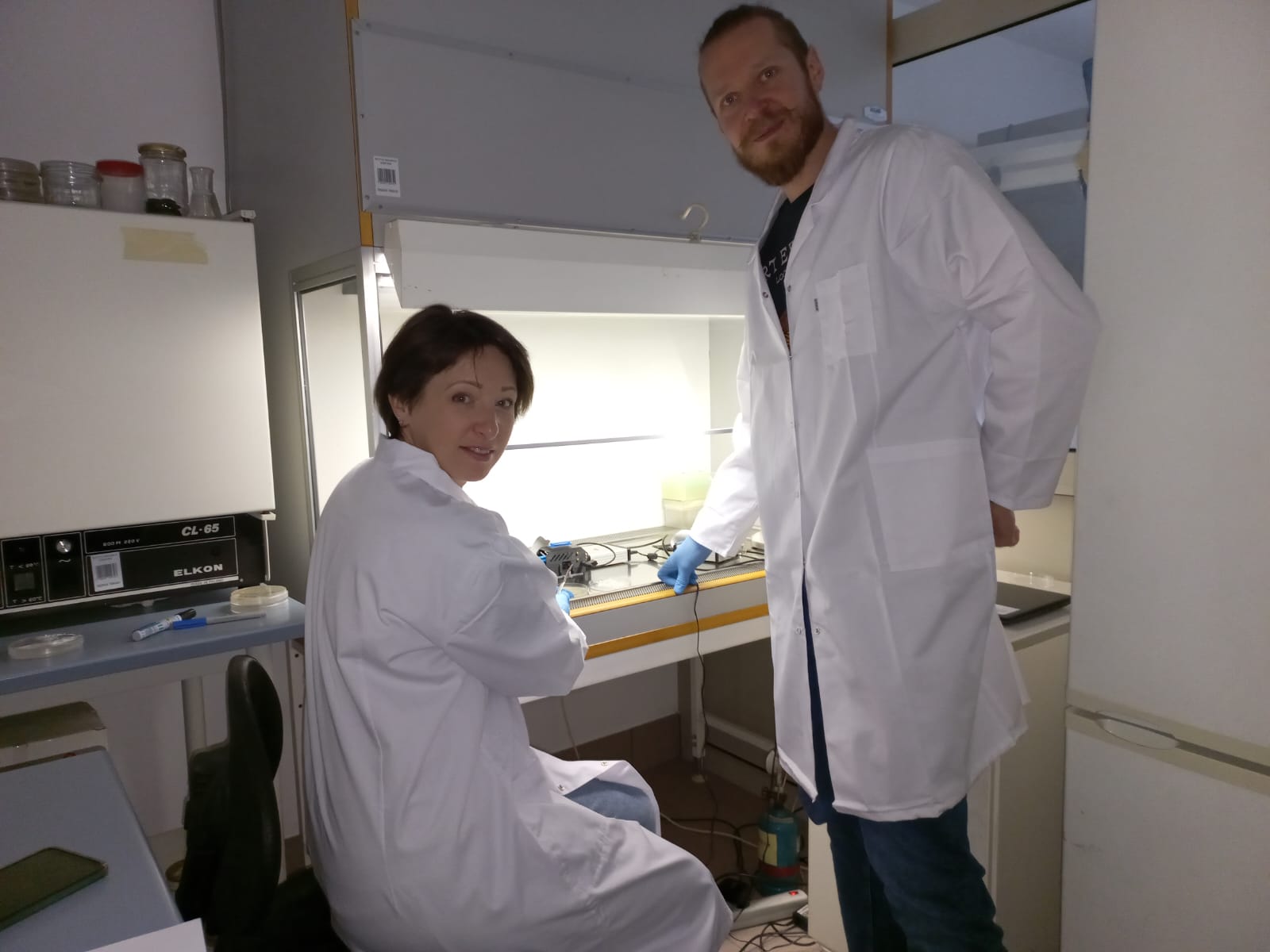Tenth Update on ISPP Resilience Bursary for Plant Pathologists
Published: 2023-02-04
As this update is being prepared, it is 11 months since the invasion of Ukraine by russia on 24 February 2022. As the first anniversary of this terrible event approaches, we hope that peace comes soon. On that day in 2022, an email exchange began between international colleagues and a scientist from Russia who said: “I and my colleagues and friends, including those from Ukraine, have the feeling that we are seeing a terrible dream, and not all this catastrophe is happening in the reality. How did we manage to bring the country to a situation where it is impossible to go out into the street with the inscription “Peace to the world”?! I have a clear goal to live to see the change of the bandit regime in this country. But the optimism that was 40 years ago that this territory will someday be a civilized society is now drying up. What a terrible shame! Peace to the world! I am so sorry...” (24 Feb 2022).
This is how the ISPP responded: By 1 March 2022, discussions between the ISPP and the Polish Phytopathological Society about how to help had commenced. On 2 March, The ISPP posted a statement on social media and the Newsletter to condemn the invasion, and the first Ukraine candidates for potential support by ISPP were identified by 9 March 2022. ISPP Executive agreement for what has become the ISPP Resilience Bursary for Plant Pathologists was obtained, and initial funding was identified by 11 March 2022.
By 24 March 2022, we were also in contact with a plant pathologist still working in Kyiv, and through him, we have initiated contact for the future establishment of a Ukrainian Phytopathology Society and later, we reached an agreement with the organisers of ICPP2023 for a special session in Lyon on “Impact of war and conflicts in plant pathology research and food safety of countries.” To date, seven ISPP-associated societies and several individuals have contributed to the bursary fund and most recently one of us ran a bursary fundraiser in lieu of having a 70th birthday party. The birthday appeal for the Resilience Bursary suggested donating the cost of a cup of coffee (or more) and to date, $630 has been raised, enough to support a scientist for more than two weeks. As of 31 December 2022, ISPP Resilience Bursaries have supported nine Ukrainian scientists working in Polish laboratories for various times with some moving on to other funding sources or roles. In discussions since the bursary fund was initiated, several people have commented that there are many other situations globally where potentially at least, plant pathologists need support. How long the need by Ukraine scientists will go on, we don’t know, but in the future, it is hoped the fund can be available for plant pathologists in need from other parts of the world as well. Perhaps as you read these lines you or your society may also wish to contribute to the fund (or organise a fundraiser) since the need remains urgent, while our funds are dwindling (donate here). Inquiries can be directed to resilience@isppweb.org.
Olga Kukina, Małgorzata Jędryczka,
Małgorzata Mańka and Greg Johnson
This month we hear from forestry researcher, Dr Olga Kukina.
I have been working at the Ukrainian Research Institute of Forestry and Forest Melioration named after G. M. Vysotsky (Kharkiv, Ukraine) for almost twenty years. During this time, I have worked my way up from being an ordinary engineer, to a senior scientific officer in the Laboratory of Forest Protection (now the Department of Entomology, Phytopathology and Physiology). I have a Ph.D. in agricultural science and entomology, and I have devoted most of my scientific time to forest entomology. I participated in studies of forest diseases and tree pathogens and was involved in a Ukrainian-Swedish project on the transmission of forest pine pathogens by stem insects. After the Russians invaded Ukraine, my life seemed to be destroyed, there was no future, let alone scientific activity. But thanks to my Polish colleagues, I have the opportunity to be safe with my 5-year-old daughter. І received a scholarship from the International Society of Plant Pathology (ISPP) and the Polish Phytopathological Society (PTFit), and now I’ve had the opportunity to work under the supervision of Prof. Dr. Tomasz Oszako in the Department of Forest Protection in the Forest Research Institute (IBL), Warsaw. A group of scientists led by Prof. Oszako has several research areas in which I am directly involved.

Collaborators of Prof. Oszako: Dr. Olga Kukina and Dr. Miłosz Tkaczyk in the IBL laboratory preparing for electronic nose measurements
Research at the institute includes the use of an electronic nose to detect pathogenic fungi (Fusarium oxysporum, Rhizoctonia solani, Cylindrocarpon destructans), oomycetes (Phytophthora plurivora, Pythium intermedium), and insect pests (Dendrolimus pini). I am concerned with the detection of the pathogen Ciboria batschiana in acorns of Quercus robur stored in barrels. Prototypes of e-noses are provided by the Warsaw University of Technology, which collaborates with IBL. The research will lead to joint publications in high-impact international journals.
I am glad to have the opportunity to learn Polish in a scientific environment that also provides me with additional opportunities to learn about new techniques and equipment. I have gained experience here that will allow me to introduce new methods for research in forest pathology in Ukraine. When the war is finally over, surely with the victory of Ukraine, the gained experience, new knowledge, colleagues, and new friends will remain with me. I would like to express my special thanks to my Polish colleagues from the Forest Protection Department, who provided me and my daughter with great care and support. A heartfelt thank you and a deep bow to the Polish people who support the Ukrainians.
Olga Kukina,
Ph.D., Senior researcher in
Department of Entomology, Phytopathology and Physiology, URIFFM
Published in: ISPP Newsletter 53 (2) February 2023, p. 5-6.




